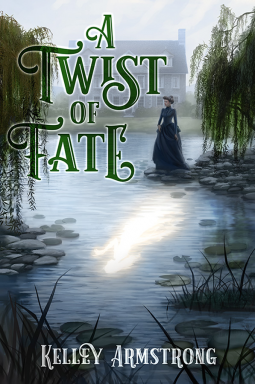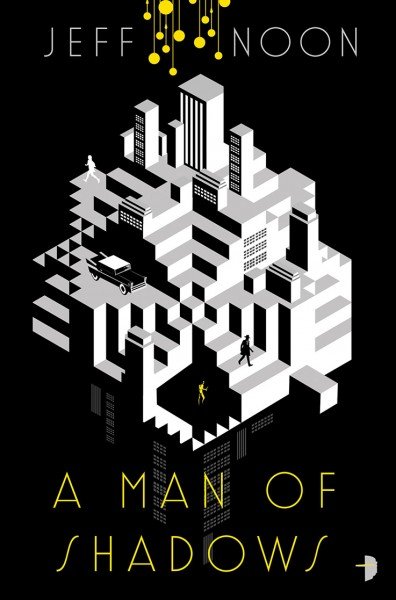A Twist of Fate, by Kelley Armstrong (Subterranean)
This time-traveling-mystery-romance, set in the world of A
Stitch in Time, is every bit as charming. In the first book, a door through
time allowed 21st Century Bronwyn and 19th Century William to fall
in love and build a life together. William’s best friend, August Courtenay, has
suffered a double loss. First his sister, drowned in the pond on the family
estate. And then his beautiful wife, Rosalind, who went riding along the ocean
cliffs one night and never returned, leaving her husband to raise their infant
son alone.
Rosalind did not perish, as everyone believes. On an impulse,
she rode out to William and Bronwyn’s home and stumbled through the time
portal. For the past four years, she’s been marooned in the present time,
learning new skills while she desperately searches for a way to return.
Now she’s back.
Matters are not so simple as a happy reunion. First she has
to explain her absence to her possessive husband. After the death of his
sister, he’s likely to think she abandoned him. Has he remarried? Is he happy
in a new life? Rosalind decides to investigate before showing up on his
doorstep and through a twist of fate, ends up as her young son’s new governess.
Not only that, but her son is one of the few people who can see the ghosts that
haunt the mansion, a gift of his mother’s “Second Sight.” Who—or what—are the
ghosts after?
Rosalind’s first-person voice is engaging and emotionally
urgent. I loved all the ways she had adapted to modern life and then took those
skills and empowerment back to the past. Her fierce, unwavering devotion to her
son was pitch perfect. On the minus side, I had trouble with how much she
dithered about telling August who she was under her convincing disguise. Like
other readers who are not primarily romance fans, I find the misunderstandings
created by the lack of a simple, direct conversation frustrating, although they
are common to the genre. To Rosalind’s credit, she is in many other ways a
resourceful character. One of the high points of the story came near the very
end, when she confronts her husband with his pathological abandonment issues
and informs him that he will have to work through them.
If you, like me, loved Bronwyn and William’s story, you’ll want to grab this one, too!








